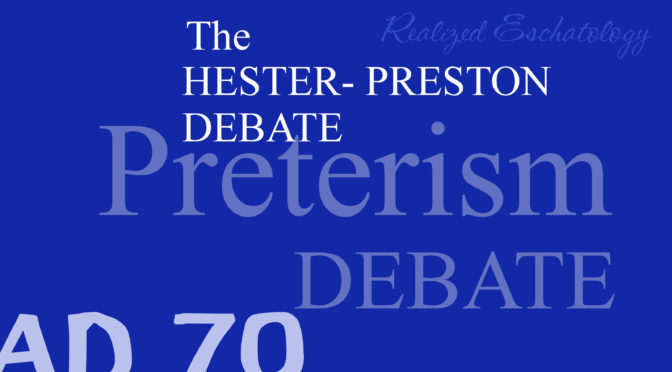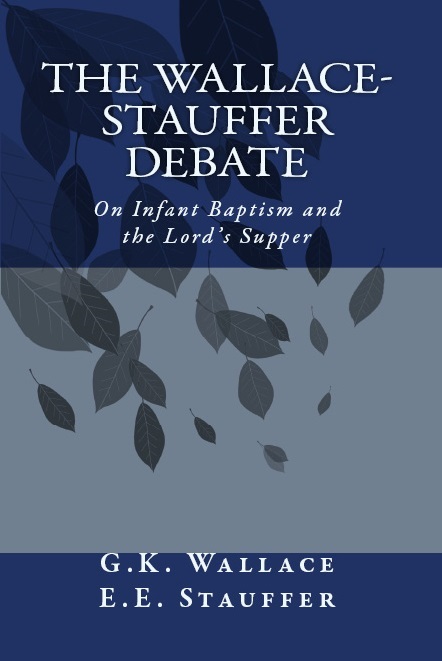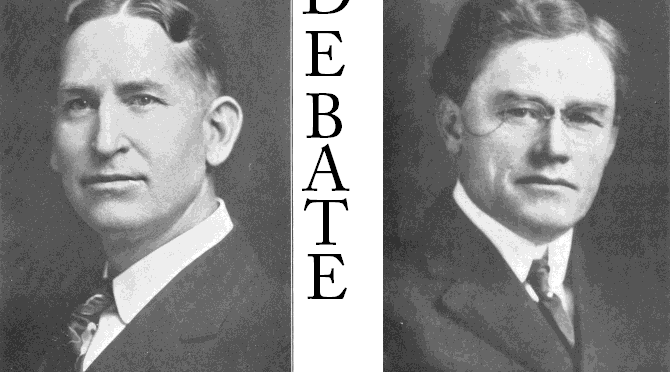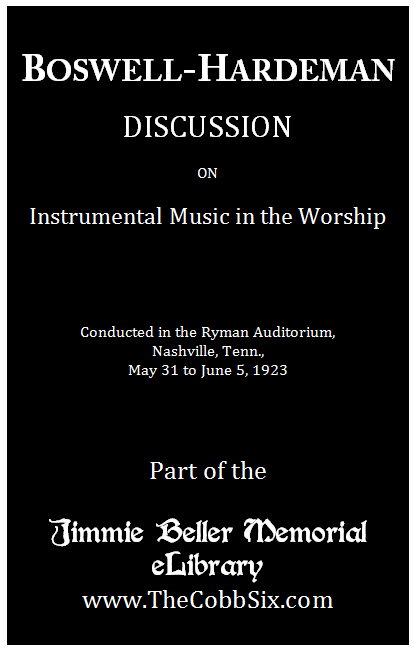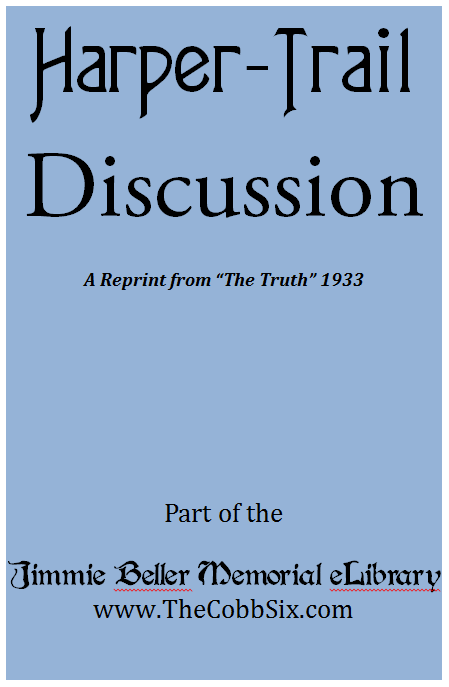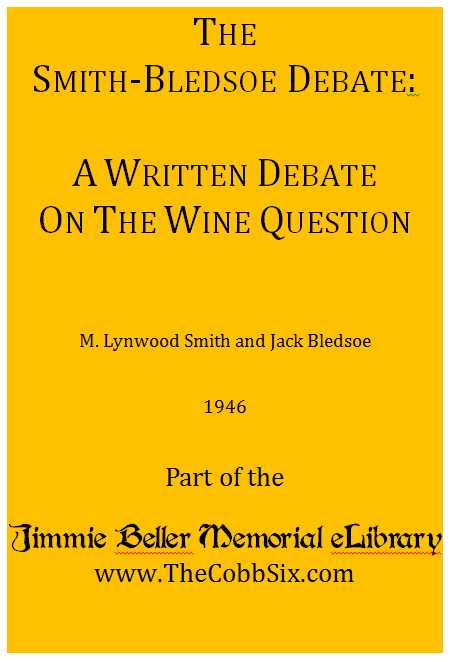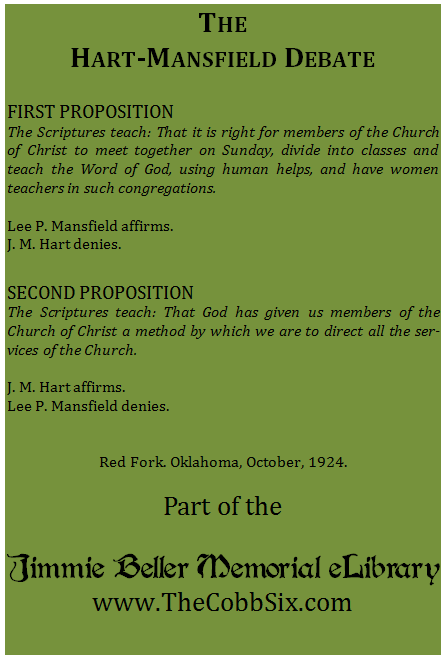Yesterday, we gave a very brief review of our impressions from the first night of the Hester-Preston debate, when Don Preston affirmed that the final coming of Christ and the resurrection of the just and the unjust took place in AD 70. Today, we will review the second night, when the roles were reversed.
(note: as stated yesterday, a much fuller review, complete with quotations and specific arguments will appear in the first issue of the Quarterly).
Proposition 2: The Bible teaches that the Second (final) coming of Christ and the attendant resurrection of the just and the unjust, is yet future, and will occur at the end of time.
David Hester opened the evening’s discussion by clearly defining his proposition and then giving 23 numbered arguments for why the resurrection could not have taken place in AD 70. I thought some of them were powerful and worth consideration, and a couple of them I would have suggested he leave out. He spent a decent amount of time speaking about the Lord’s Supper, which was to show the death of Christ “until He comes,” pointing out that if Jesus came in AD 70, then the Lord’s Supper really doesn’t show anything at all anymore.
Preston’s response focused mainly on reiterating his arguments from the night before, and he only specifically mentioned four of David’s twenty-three arguments. He pointed out that David didn’t answer all of his arguments from the night before, restating several of them. He also brought up a couple arguments against David’s proposition by appealing to specific Greek constructions in certain passages.
In his second speech, Hester requested that Preston answer the arguments given instead of “rehashing” things from the night before, since this was a new proposition. He also showed some examples from the Bible that disproved one of the Greek arguments that was made, while also spending much time affirming that while the time of the destruction of Jerusalem was known by Jesus and the apostles, the time of the final judgment and resurrection was not.
Preston, in reply, argued his points again (except for that Greek argument), emphasizing that his arguments from the night before, while not specifically answering each detail of Hester’s 23 arguments, were sufficient to disprove them. He also spent a good deal of time giving arguments against the idea that the apostles didn’t know when the second coming of Jesus would be (specifically John 16, “He will guide you into all truth).
David Hester spent around half of his final speech quoting translations and recognized Greek scholars in regards to the Greek word “mello,” which Preston says means “about to” and stresses imminence. He also reiterated some of his previous arguments and gave Acts 1:7 as proof that the apostles weren’t privy to the time of the final coming of Christ.
The final speech by Don Preston covered a lot of the territory from earlier speeches, and he re-emphasized some of the points from the previous night which Hester didn’t really address. Some of these points demand examination and study, and I wish Hester would have gotten to them. But like we said in yesterday’s post, there was so much information put out there that it was pretty much impossible to deal with all the lines of argumentation that was given. This is the same situation that Don found himself in on the second night. Though I think he could have done more to answer the specific 23 arguments given by David Hester, there really wasn’t enough time in the debate to devote to answering each one specifically. He did make a strong point that David didn’t show a passage that referred to “the end of time.”
Day 2 Conclusion:
Because of Hester’s understandable, structured presentation of the material, and Preston’s lack of specific answers to 80% of the arguments put forth, our impression is that the proposition affirmed by David Hester was successfully defended.
Again, as we said before, there wasn’t time to sufficiently cover each argument, but there was opportunity to deal with more than four of them, which we believe would have been a better use of Preston’s speeches.
Having said that, Preston did offer some evidence in his rebuttal speeches that deserves further study. But these were not sufficient in and of themselves to successfully negate the proposition being argued.
Final Conclusion:
Both men were very passionate about their position, and would occasionally get loud and point fingers. But it was conducted in a very dignified manner, and both men were engaged in a friendly conversation afterwards.
The two men are considering debating again in Alabama at some point in the future, if proper arrangements can be worked out.
-Bradley S. Cobb
